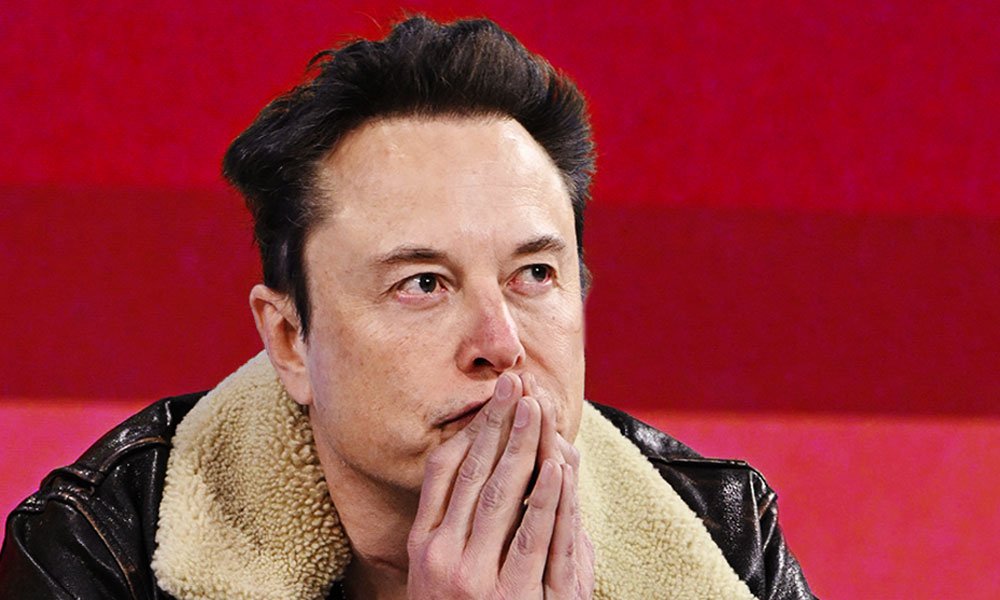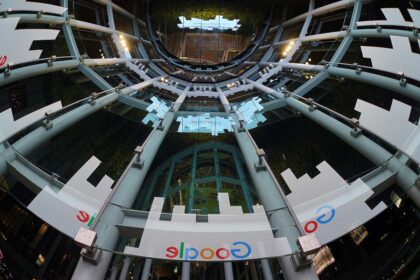
Elon Musk and DOGE: Government Efficiency or Just Smoke and Mirrors?
Introduction
When Elon Musk sets his sights on fixing something, the world pays attention. Now, he's zeroed in on what he calls the bloated, inefficient U.S. federal government — and he's launched an ambitious initiative to do something about it: the Department of Government Efficiency, or DOGE.
But a tense moment at the Qatar Economic Forum cast serious doubts on the viability of this effort. When Bloomberg journalist Mishal Husain asked some tough questions about the math behind DOGE's alleged savings, Musk fired back — accusing her of being trapped in a scripted journalist “dialogue tree.”
So what's really going on with DOGE? Is Musk truly saving the government trillions? Or is this all just part of a larger performance?
The Origins of DOGE
DOGE isn't a real federal agency — it's an advisory group. But with Elon Musk at the helm and the ear of President Trump (in his second term), it might as well be one. Formed shortly after Trump's return to office, DOGE was tasked with identifying inefficiencies, redundancies, and waste across all branches of government.
Its mission? Eliminate $2 trillion in waste by the end of next year.
Musk's $2 Trillion Ambition
That's a bold number. To put it in context, it's more than the GDP of Italy. Musk's vision for DOGE includes everything from cutting duplicate bureaucracies to slashing contracts that no longer serve the public interest. But the number isn't just aspirational — it's a benchmark he's publicly committed to hitting.
The question is: can he?
The $4 Billion a Day Claim
During the Qatar Economic Forum, Musk reiterated that DOGE is saving $4 billion every single day. Sounds impressive, right?
Let's crunch the numbers. $4 billion/day for 365 days equals $1.46 trillion — short of the $2 trillion target. That assumes DOGE's recommendations are being implemented fully and immediately, which even Musk admits isn't the case.
So where's the rest coming from?
Critics Weigh In
Not surprisingly, economists and political watchdogs are raising eyebrows. Critics argue that Musk is inflating the numbers or, at best, estimating future savings as if they've already occurred. Some claim the $4 billion figure includes theoretical savings — like avoiding future spending — rather than actual cuts.
Without independent audits, it's hard to verify any of it.
The Qatar Economic Forum Clash
At the heart of this growing controversy is Musk's now-viral exchange with Bloomberg's Mishal Husain. She calmly asked how DOGE could possibly hit $2 trillion in savings by next year, given the numbers just didn't seem to add up.
Musk's response? Less calm.
“You're trapped in the NPC dialogue tree of a traditional journalist,” he said, dismissing the question altogether.
What Musk Meant
The “NPC” remark is a reference to the gaming world — NPCs (non-player characters) are known for repeating scripted, predictable dialogue. In Musk's view, Husain was just parroting mainstream skepticism instead of engaging in innovative thinking.
But the jab rubbed many the wrong way. Was Musk dodging accountability? Or just frustrated with being misunderstood?
DOGE's Role and Limitations
One thing Musk clarified: DOGE is advisory-only. It has no legislative or executive authority. It can't fire anyone. It can't pass laws.
All it can do is recommend cuts — and hope someone listens.
Even so, its influence has been massive. DOGE's suggestions have triggered sweeping layoffs and reshuffling across the federal workforce, thanks to buy-in from top leadership.
Resistance Within Government
Still, Musk claims his hands are tied in many areas. Resistance, he says, is coming from all three branches of government. From entrenched bureaucrats to political rivals, there are plenty of people who aren't thrilled with DOGE's aggressive approach.
Musk believes the resistance is proof that DOGE is doing something right — shaking the system out of complacency.
The Trump Connection
With Trump back in the Oval Office, Musk has more political capital than ever. As one of the President's top advisors on tech and economic reform, Musk's ideas are being fast-tracked — for better or worse.
DOGE is a reflection of Trump's broader agenda: leaner government, fewer employees, and deregulation across the board.
Impact on Federal Workforce
So far, hundreds of thousands of federal workers have either been laid off or accepted early retirement offers. This is where the savings are most visible — fewer salaries, benefits, and pensions to pay.
But there's a human cost. Critics say vital public services are being gutted, and the morale of those left behind is plummeting.
Transparency and Accountability
For all its bold claims, DOGE is frustratingly opaque. There are no public audits. No detailed breakdowns of savings. No oversight committees.
That's led to growing calls for transparency. If Musk is truly saving the government billions, why not show the receipts?
Are Musk's Claims Verifiable?
As of now, we're taking Musk at his word. And for many, that's not good enough. Even fans of his work with Tesla and SpaceX admit that government reform needs more than charisma and confidence — it needs proof.
Until DOGE's work is independently validated, the debate will rage on.
Media vs Musk
This isn't the first time Musk has clashed with the media. He has a history of calling out what he sees as biased or lazy journalism. But critics argue that attacking the press is a deflection tactic — one that avoids answering hard questions.
The Qatar interview may just be the latest episode in a long-running feud.
Public Perception
So what does the public think? Polls are mixed. Some Americans love the idea of slashing government waste and see Musk as a visionary. Others worry he's dismantling critical infrastructure in the name of efficiency.
DOGE remains polarizing — and that may be exactly what Musk wants.
Conclusion
Elon Musk's Department of Government Efficiency is a bold experiment in cutting government waste. Whether it's a game-changing initiative or just another publicity stunt depends on who you ask. What's clear is that DOGE has already had a massive impact — on federal policy, public discourse, and the livelihoods of thousands.
As the 2025 deadline approaches, the pressure is on. If Musk can hit that $2 trillion goal, he may go down as a revolutionary. If not, DOGE may become just another cautionary tale in the history of government reform.
FAQs
1. What is the Department of Government Efficiency (DOGE)?
DOGE is an advisory group created by Elon Musk to help cut inefficiencies in the U.S. federal government. It does not have legal authority but provides recommendations.
2. How much money has DOGE actually saved?
Musk claims DOGE is saving $4 billion a day, though these figures haven't been independently verified.
3. Why did Elon Musk clash with a Bloomberg journalist?
During an interview, Musk dismissed a journalist's questions about DOGE's savings by saying she was “trapped in an NPC dialogue tree,” sparking debate about transparency and accountability.
4. Is DOGE part of the U.S. government?
No, DOGE is not a formal government agency. It operates as an advisory body closely linked to President Trump's administration.
5. Will DOGE meet its $2 trillion goal?
It's unclear. While Musk is confident, many experts believe the numbers don't add up, and the timeframe is extremely ambitious.
Elon Musk: "I feel you're somewhat trapped in the NPC dialogue tree of a traditional journalist… it's like talking to a computer."pic.twitter.com/beghbi0PFY
— (news) DOGE (@DOGE__news) May 21, 2025












